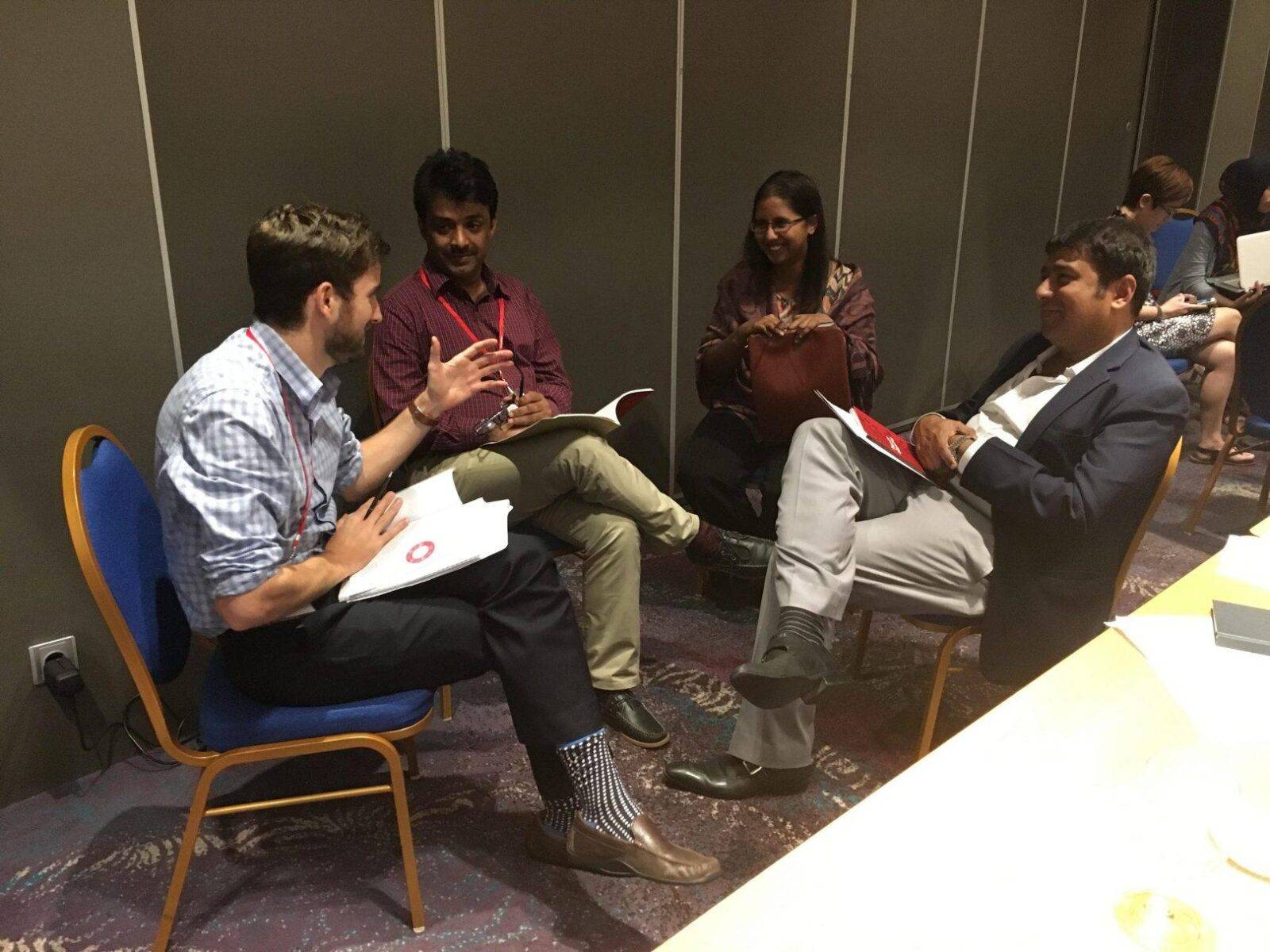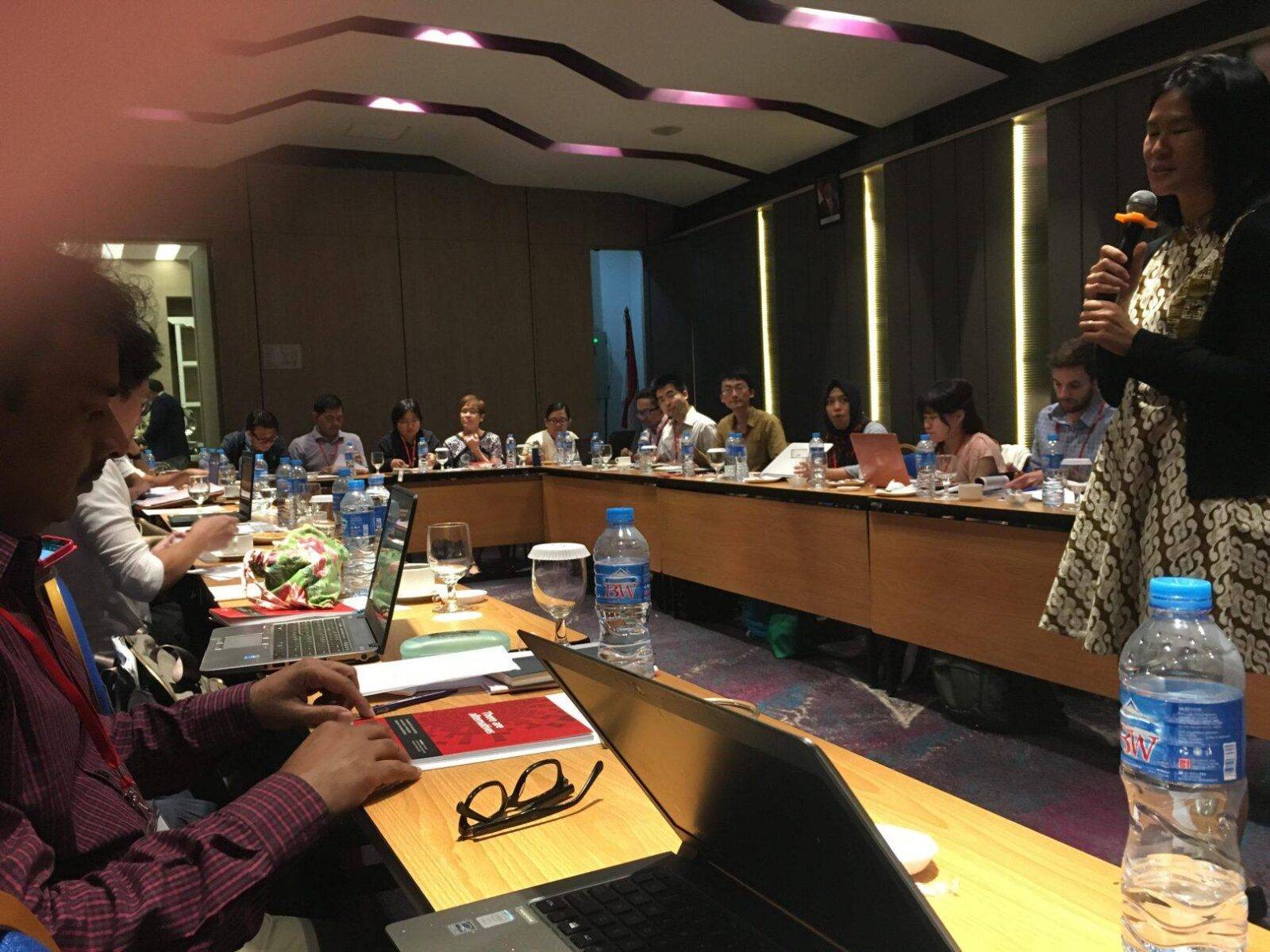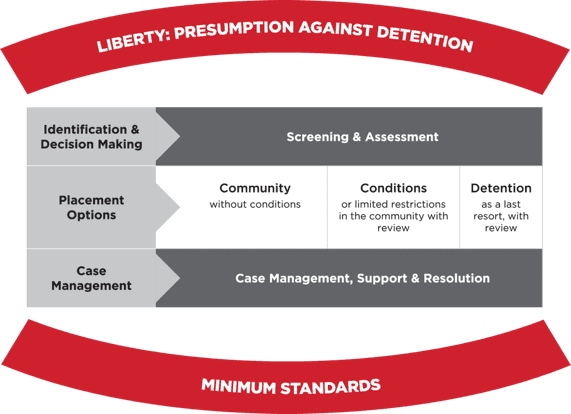Two Damning UN Expert Reports of Australia’s Detention Regime
Australia has just announced it will take a seat on the powerful United Nations Human Rights Council.
Yet two UN Experts have pointed out that significant improvements will need to be made by the Australian government before it is able to have a strong record on human rights.
UNHCR chief, Filippo Grandi, called on Australia to end harmful practice of offshore processing. He emphasised that the practice of offshore processing has had a hugely detrimental impact and that there is a fundamental contradiction in saving people at sea, only to mistreat and neglect them on land.
Additionally, in the recent 35th Session of the Human Rights Council, the United Nations Special Rapporteur on the Human Rights of Migrants delivered report of Australia’s regional detention facilities on Nauru, and mainland immigration policy and practice. (See A/HRC/35/25/Add.3, released on 24/04/2017).
François Crépeau visited Australia’s mainland immigration detention centres and regional processing centres in Nauru from 1 to 18 November 2016, aiming to evaluate the migration programmes, policies and laws recently put in place by Australian government.
Although the Special Rapporteur commended Australia on its comprehensive and innovative integration practices run by both government and non-government organisations on the mainland, he condemned Australia’s use of regional processing centres as having “eroded the rights of migrants”.
This report comes after human rights and refugee advocacy groups across the nation call for the end of regional processing, furthered by past reports from former workers on the harsh conditions at Nauru.
The Special Rapporteur heard stories of rape, assault, beatings and impunity, among stories of neglect, deteriorating mental health and indefinite detention of children “[migrants] experience harsh punishment for a crime not committed” he said.
Crépeau further questioned the discrimination of people seeking asylum based on their mode of arrival, highlighting that “unauthorized maritime arrivals face obstacles that other refugees do not face”.
Crépeau acknowledged the use of prison-like offshore detention in aiming to deter maritime arrivals, Crépeau advised that “it is a fundamental principle of human rights law that one person cannot be punished only for the reason of deterring another”.
“The forced offshore confinement in which asylum seekers and refugees are maintained constitutes cruel, inhuman and degrading treatment or punishment according to international human rights law standards.”
Among 30 specific recommendations, the Crépeau highlighted the need for:
- Detention to be used only as a last resort, and on a case-by-case basis only when there is evidence that an individual presents a danger to the public
- An end to indefinite detention and an avoidance of temporary visas
- Reinforcement of the right of migrants to judicial review of their visa applications
- An end to the detention of children
- Strong mental health care for migrants while their applications are processed
- The establishment of an independent body to investigate and bring justice to claims of abuse of people while in detention
- Allowing work rights on visas so people seeking asylum may support themselves and have a greater sense of hope while awaiting a decision on their claims
- An end to the xenophobic attitude and culture of criminalising migrants with terms such as “illegals”
Overall, the Special Rapporteur advised that “quickly closing the centres is the only solution”.
“The best way of ensuring the legitimacy of laws, policies and practices is to have their conformity with human rights standards assessed by courts and ultimately by the High Court of Australia.”
To read the full report, follow the link.
Although Australia’s processing centre on Manus Island in Papua New Guinea is set to close by the end of October, the future of Nauru remains undecided. With current hopes for a refugee resettlement deal with the US in limbo, the future for hundreds detained in Nauru remains unclear.
The International Detention Coalition does not support the detention of children under any circumstances. Immigration detention should be used only as a last resort, in exceptional cases, and only after all other options have been shown to be inadequate in the individual case.
The IDC encourages governments and border patrols to employ Alternatives to Detention as a more humane, efficient and cost-effective way to manage immigration.
This article was written by Lucy Bashfield while completing her Global Communications Internship with the International Detention Coalition.
UN Experts Seek Submissions on the Human Rights of Migrant Children
This is reposted from OHCHR, please find the original post here
CMW-CRC Joint General Comment on the Human Rights of Children in the Context of International Migration
The Committee on the Protection of the Rights of All Migrant Workers and Members of Their Families (CMW) and the Committee on the Rights of the Child (CRC) have started to elaborate a Joint General Comment (JGC) on the human rights of children in the context of international migration.
The joint general comment will seek to provide guidance to States parties to both Conventions on the situation of children in the context of international migration, including:
- Children that migrate with their parents who are migrant workers;
- Children that are born to parents who are migrant workers in transit and destination countries;
- Migrant children that return to their country of origin, either voluntarily or by force, alone or with their parents;
- Children left behind by their parents (or one of them) who have migrated to another country; and
- Children that migrate unaccompanied and separated from their parents (for reasons such as seeking employment, family reunification or as victims of trafficking, labour exploitation and child labour).
Following a call for submissions and the establishment of a zero draft, the Committees have decided to hold consultations to ensure that the perspectives of States, United Nations agencies and entities, civil society organizations and other stakeholders with respect to this issue are raised, discussed and reflected in the draft for further consideration by both Committees.
Documentation:
Expert and Regional Consultations:
Geneva Consultation (2 May 2017)
Madrid (4 to 5 May 2017)
Bangkok (24 to 25 May 2017)
- Concept Note Bangkok
- Background Note on Regional Conference on Children on the Move in Southeast Asia.
Berlin (12 to 13 June 2017)
Mexico City (28 to 29 June 2017)
If you are interested in contributing to this Joint General Comment on the Human Rights of Children in the Context of International Migration and would like further information, please contact IDC Advocacy Coordinator Ben Lewis at [email protected].
Save the Date : IDC Annual Member Meeting June 16
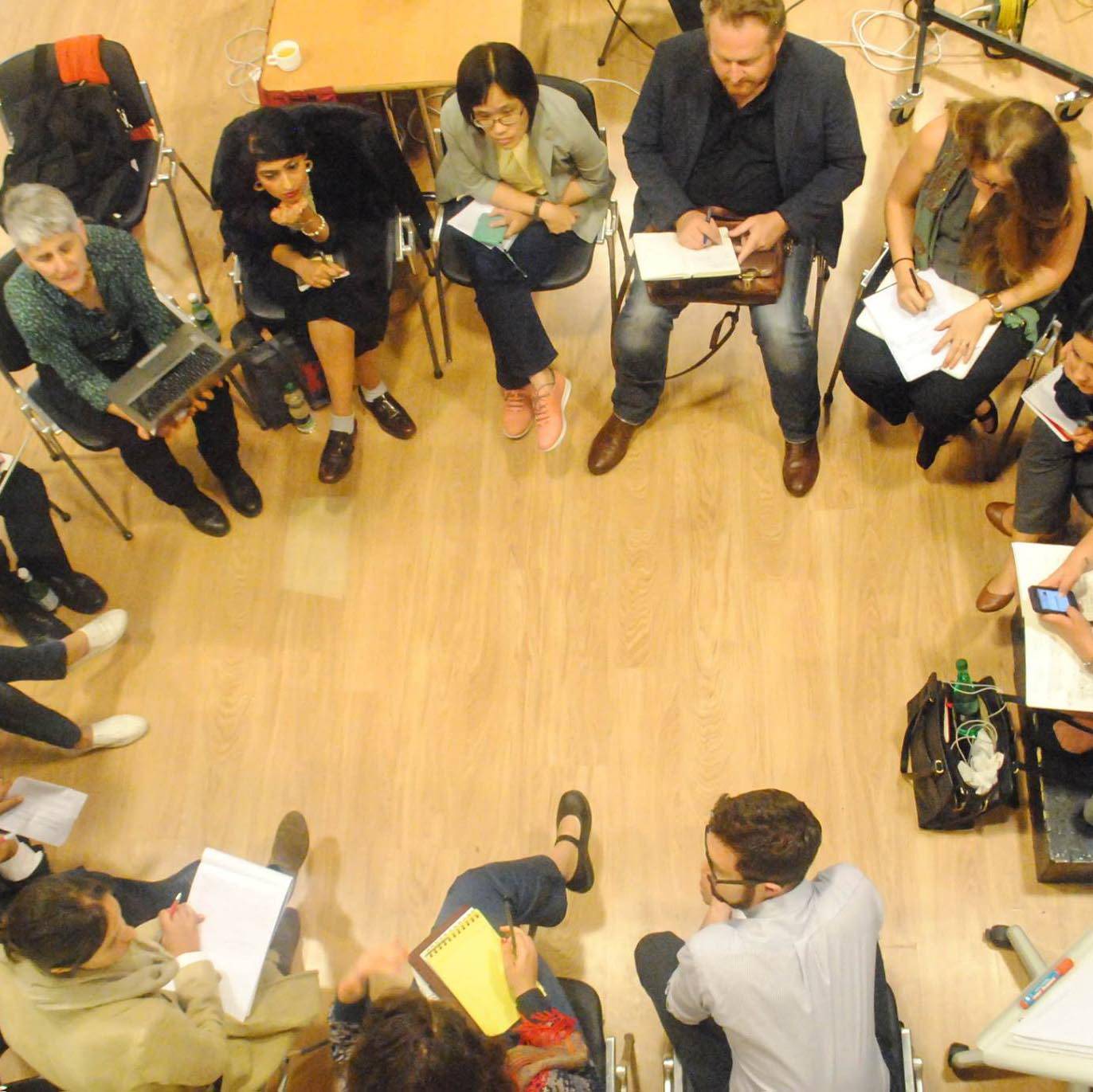
Members at the IDC Annual Member Meeting 2016
Our annual member meeting will be held at the International Conference Centre in Geneva on June 16 from 4.30 - 6.30 pm.
The meeting provides an excellent opportunity for members to share information and insight across the network. We will discuss four thematic areas which will help shape the work of the IDC in the year ahead.
This years meeting will be in the same building - and directly after - the annual UNHCR NGO Consultations.
All Members of the IDC are encouraged to fill out the short survey, available at the button below, by June 1 to inform the planing session.
Responses from the survey will be shared among IDC Members.
For those members who are unable to attend in person, a livestream of the member meeting will be available.
For more details, please contact [email protected]
Building Support for Alternatives to Detention for Children in NZ
An international delegation visited New Zealand over the week of April 3 - April 7, exploring ways alternatives to detention for children could be expanded.
Delgates included Dr. Robyn Sampson, Research Coordinator for the IDC, Ms Michelle Ferns of the Refugee Council of Australia, and Mr Chak Ng who worked with unaccompanied refugee minors for many years at Lutheran Community Services Northwest and Lutheran Immigration and Refugee Service.
The visit included meetings with eight Members of Parliament, senior Immigration staff, refugee settlement service providers, child rights groups, members of IDC and APRRN, and civil society groups.
 Ms Michelle Ferns, Hon Chester Borrows - Deputy Speaker & National MP for Whanganui, Dr. Robyn Sampson and Mr Chak Ng in Wellington
Ms Michelle Ferns, Hon Chester Borrows - Deputy Speaker & National MP for Whanganui, Dr. Robyn Sampson and Mr Chak Ng in Wellington
The delegation voiced their deep concern for children held in immigration detention centres in the region, and highlighted the positive development of alternatives to detention for unaccompanied minors in countries such as Indonesia, Malaysia and Thailand.
This proposal is designed to make greater strategic use of limited resettlement places, to increase the impact resettlement can achieve.
Specifically, the delegation put forward a proposal that New Zealand resettle 20 unaccompanied refugee children from shelters in Indonesia, Malaysia or Thailand. This proposal is designed to make greater strategic use of limited resettlement places, to increase the impact resettlement can achieve. The proposal not only responds to the needs of a number of highly vulnerable children needing protection, but also doubles the impact resettlement can achieve by opening up 20 spaces in the community for children held in detention.
Mr Ng was able to draw from his significant expertise on unaccompanied children resettlement to answer the many detailed questions raised about the ‘nuts and bolts’ of this proposal.
The work follows on from previous visits from the IDC and the Asia Pacific Refugee Rights Network (APRRN) aimed at building awareness of refugee issues in our region, and highlighting our particular concern for children held in immigration detention.
Southeast Asia Children on the Move Conference
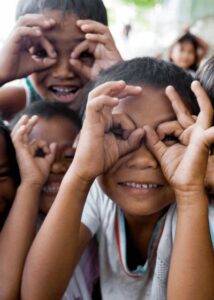 Save the Children (SC), Terre de Hommes (TdH), International Detention Coalition (IDC) and Asia Pacific Refugee Rights Network (APRRN) are jointly organising a regional conference on children on the move in Southeast Asia.
Save the Children (SC), Terre de Hommes (TdH), International Detention Coalition (IDC) and Asia Pacific Refugee Rights Network (APRRN) are jointly organising a regional conference on children on the move in Southeast Asia.
The event will take place in Bangkok, Thailand on 24 and 25 May 2017.
Why hold a Regional Conference on Children on the Move?
The aim is to gather inputs from a range of stakeholders across the Southeast Asia region to inform the content of the Global Compacts on Migrants and Refugees especially issues that relate to children, as well as the content of the forthcoming Joint General Comment on the human rights of children in the context of international migration.
The conference will focus on three thematic areas that impact children on the move:
- Access to services
- Child immigration detention, provision of appropriate reception and care
- Integration and non-discrimination
Who should attend and why?
The conference is for representatives of national and regional civil society organisations, national governments and UN bodies who have experience of, interest in or the mandate to support the rights of children on the move and other children affected by migration. You are invited to register your interest to participate as an individual, representing your organisation or government who can bring experience and technical expertise to this event.
Register your interest
Please complete this form. Limited funding is available to support travel costs for national organisations. Kindly complete the form by 24 April 2017.
We will provide confirmation of participants by 1 May 2017. Should you have any questions, please do not hesitate to get in touch with: [email protected]

A Framework For Change in Asia Pacific
A 2 ½ day capacity building workshop was held in Jakarta (March 7 – 9) with just under 30 participants from civil society organisations and UNHCR offices across the Asia Pacific.
Coordinated by IDC in partnership with the Asia Pacific Refugee Rights Network (APRRN), the workshop aimed to enhance understanding of tools and strategies to advocate for alternatives to immigration detention.
Day one focused on the IDC’s Community and Assessment and Placement Model (CAP model). The model provides a practical way for governments, civil society and other stakeholders to explore alternatives to immigration detention.
Day two focused on building an effective government relations strategy and designing a roadmap to identify ways to build support for long term change. Participants undertook a “tough questions” exercise, utilizing the technical knowledge of the workshop within the government relations framework.
“I was impressed by the knowledge, passion and innovation that is within our network” said Vivienne Chew, the Asia Pacific Regional Coordinator for IDC.
“Over the two days we had a chance to share and reflect on what has been working, what has been challenging, and what we need to focus on next” said Ms. Chew.
“Over the two days we had a chance to share and reflect on what has been working, what has been challenging, and what we need to focus on next” said Ms. Chew.
Significant progress has taken place in the Asia Pacific region this year. For example, Indonesia signed a Presidential Decree (Perpres) regarding the treatment of refugees and asylum seekers in the country. The Thai Government has approved a framework to enhance the identification and protection of refugees.
However, these steps to recognize the rights of asylum seekers, migrants and refugees take place in the context of a worldwide increase in the use of immigration detention and a rise of conservative government policies that are focused on deterring migration.
Prior to the workshop, participants undertook an online training course on case management and the role it can play to enhance alternatives to immigration detention. The training course is currently being piloted by IDC members and partners, with an official launch planned for June 2017.
To find out more about how you can advocate to end harmful immigration detention, contact [email protected]
Refugee Alternatives Conference in Australia
Australia's refugee sector came together on the 22 -23rd of February for a conference on Refugee Alternatives: Improving policy, practice and public support.
Hosted by IDC member, the Refugee Council of Australia, and the University of New South Wales, the conference facilitated dialogue on key policy issues, and collaboration across the sector.
The event brought together a wide range of expertise covering topics of displacement; protection; cooperation; wellbeing; resilience; education; advocacy; and unity.
The Refugee Alternatives conference discussed alternatives to Australia’s current methods of dealing with asylum seekers, other countries’ handling of the refugee crisis, immigration law and personal stories that highlighted both the plight that refugees and asylum seekers face and the potential* that they can achieve given the chance.
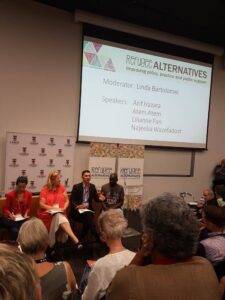 One of the most powerful elements was that at least 30% of the speakers came from a refugee background. These speakers demonstrated the amazing capacity of those with refugee experiences to advocate for the issues that affect them most.
One of the most powerful elements was that at least 30% of the speakers came from a refugee background. These speakers demonstrated the amazing capacity of those with refugee experiences to advocate for the issues that affect them most.
The IDC's Dr. Robyn Sampson moderated a session on 'How do we achieve change' with IDC member Dr. Caroline Fleahy of the Centre for Human Rights Education at Curtin University.
The panel was an opportunity for Leeanne Torpey, the coordinator of the Global Campaign to End Child Immigration Detention, to present on the current strategy for ensuring children are no longer detained in Australia. The national campaign work now involves 23 organisations, representing over 120,000 supporters across the country! The campaign is working to generate bipartisan support for legislative reform to prevent the detention of children in Australia.
The keynote speakers at the conference were Gillian Triggs, president of the Human Rights Commission and Dr. Mujed Al Muderis, orthopedic surgeon and human rights activist. The speakers and panelists included a diverse range of people with varying expertise and experiences to offer and share. Ranging from professors to activists and musicians; from refugees now living in Australia to lawyers fighting for their rights, people came together to discuss the pressing issues of refugee rights and the befits of alternatives.
You can watch Gillian Triggs’ continued resilience and Mujed Al Muderis’ heartfelt and funny retelling of his story of coming to Australia here.
Presidential Decree on Treatment of Refugees in Indonesia
In January 2017, President Joko “Jokowi” Widodo signed a Presidential Decree (Perpres) regarding the treatment of refugees and asylum seekers in the country.
Previously, the management of refugees and asylum seekers in Indonesia had been based on the Immigration Law and the discretion of local authorities; the Immigration Law however, did not recognize the status of refugees or asylum seekers and as such, they were classified as “illegal immigrants”. By providing a definition of “refugees” based on the definition contained in the 1951 Refugee Convention, the Perpres goes some way towards filling a gap in the legal framework for refugees and asylum seekers in the country.
Other notable provisions in the Perpres include detailed provisions on which government institutions are responsible for managing refugees in Indonesia together with their respective responsibilities, including search and rescue operations in emergency situations. The Perpres also re-affirms the availability of alternatives to detention for refugees with special needs and vulnerabilities (illness, pregnancy, disabilities, children, and the elderly), stating that they may be placed in shelters instead of detention.
IDC member SUAKA welcomes this new regulation that has been developing since 2010.
“We appreciate that this new Perpres confirms the definition of refugees contained in the 1951 Refugee Convention, and does not continue to label asylum seekers as illegal immigrants,” said Muhammad Hafiz, SUAKA Advocacy Coordinator, and Executive Director Human Rights Working Group Indonesia (HRWG).
Febi Yonesta, chair of SUAKA, confirmed that this decree should become the key regulation and reference for officials regarding the treatment of asylum seekers and refugees. Prior to this law, officials were hesitant to address some issues affecting asylum seekers and refugees, including the arrival of people by boat. “Due to the absence of regulation their approach was often protectionist, which increases the vulnerability of people seeking asylum from war, persecution and mistreatment,” he said. The implementation of this decree will increase understanding among officials, both legally and in the field, and establishes coordination and a clear governmental approach to the treatment of asylum seekers, “no matter the mode of their arrival”.
SUAKA has also stressed the need for the Perpres to be widely disseminated to government officials to “ensure effectiveness and compliance… especially in areas where asylum seekers and refugees are held in detention or live in the community”. While recognizing some of the areas of the Perpres that require further clarification, IDC welcomes this development by the Indonesian Government and the many stakeholders, including civil society, who supported its development.
Thai Government Resolution for Protection of Refugees
The Thai Government has approved a framework to enhance the identification and protection of refugees.
The resolution was approved in principle by the Cabinet to finalise and implement a screening mechanism for undocumented immigrants and refugees. The plan comes following agreements made at the 2016 UN Summit for Refugees and Migrants where Prime Minister Prayut Chan-o-cha pledged to improve protection and solutions for refugees in Thailand.
A framework to identify undocumented immigrants and refugees has the potential to prevent people being labeled as ‘illegal aliens’ or ‘illegal immigrants’, labels which make them highly vulnerable to arbitrary arrest, detention and forced deportation.
The UN Refugee Agency, UNHCR, has applauded the approval by the Thai Cabinet.
“With more than 65 million people forcibly displaced globally, it is crucial that States and international actors work hand in hand to respond to growing humanitarian needs,” Ruvendrini Menikdiwela, UNHCR’s Representative in Thailand said in a statement. “It is heart-warming to see Thailand acting upon pledges made in New York, and once again taking a leadership role in the ASEAN region in addressing complex issues related to refugees and stateless persons.”
“It is heart-warming to see Thailand acting upon pledges made in New York, and once again taking a leadership role in the ASEAN region in addressing complex issues related to refugees and stateless persons…” Ruvendrini Menikdiwela, UNHCR Thailand
The UNHCR has long been advocating for comprehensive legal framework for the protection of refugees in Thailand, which hosts more than 1 million refugees.
“This Cabinet action represents an important and concrete step towards creating an appropriate regulatory framework for refugee management and protection in Thailand,” said Menikdiwela. “We hope it will clearly establish the criteria and methodology for deciding who is and isn’t a refugee, and outline their rights and obligations in Thailand.”
The process will be done in collaboration and corporation with foreign governments, international organisations and non-government organisations. The UNHCR statement added that it would continue to offer support and technical assistance for finalising and implementing the framework for refugee management in Thailand.
Thailand is one UNHCR’s focus countries for the Beyond Detention strategy. See the national report here, and the progress report here .
How to Get Involved In the UN Global Study on Children Deprived of Liberty
Around the world, an unknown number of children are deprived of their liberty every year. Such detention often occurs in squalid conditions, without adequate oversight and regulation, negatively impacting children’s mental and physical development. Despite evidence that deprivation of liberty is both costly and harmful, there is an acute lack of comprehensive, disaggregated data and qualitative research on child detention, leaving States without a clear indication of the scope of the problem or adequate information on alternatives to detention that may be more beneficial to both children and society.
What is the UN Global Study?
The UN Global Study on children deprived of liberty (“Global Study”) will collect sorely needed qualitative and quantitative data on children in detention, while also studying good practices that can shape more effective policies and practices. Previous in-depth UN studies of this caliber have proved crucial in providing an objective reference point for serious issues such as children affected by armed conflict (Machel Study, 1996) and violence against children (Pinheiro Study, 2006).
The Global Study will take into account deprivation of liberty in all its forms, including: children in conflict with the law, children confined due to physical or mental health or drug use, children living in detention with their parents, immigration detention, and children detained for their protection or for national security reasons such as during armed conflict. It will take a collaborative approach with the involvement of a range of actors, including UN agencies, States, civil society organizations, academics, and children.
Support for the UN Global Study?
In December 2014, during the 69th Session of the UN General Assembly, UN member States adopted resolution A/Res/69/167:
“To invite the Secretary-General to commission an in-depth global study on children deprived of liberty, funded through voluntary contributions and conducted in close cooperation with relevant United Nations agencies and offices . . . and in consultation with relevant stakeholders, including Member States, civil society, academia and children, and to include good practices and recommendations for action to effectively realize all relevant rights of the child . . .”
The key output of the Global Study will be an in-depth, comprehensive global report to be presented to the UN General Assembly (UNGA) at its 73rd regular session (2018).
In October 2016, the UN Secretary General appointed Manfred Nowak as Independent Expert to lead the Global Study. Mr. Nowak is a professor of international law and human rights at the University of Vienna and the Secretary-General of the European Inter-University Centre for Human Rights and Democratisation in Venice. He was previously the United Nations Special Rapporteur on Torture and a member of the United Nations Working Group on Enforced or Involuntary Disappearances.
Get Involved
There are now over 100 non-governmental organizations from around the world who support the Global Study as members of the NGO Panel. The IDC Secretariat is a member of the NGO Panel, and encourages our Members to also join the NGO Panel to lend your support to the Global Study.
The IDC is also holding a free webinar to inform our Members and partners further about the Global Study and to discuss how to best support the Independent Expert on the collection of data and good practices around ending the immigration detention of children.





